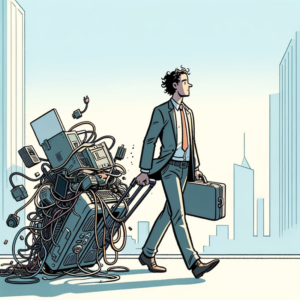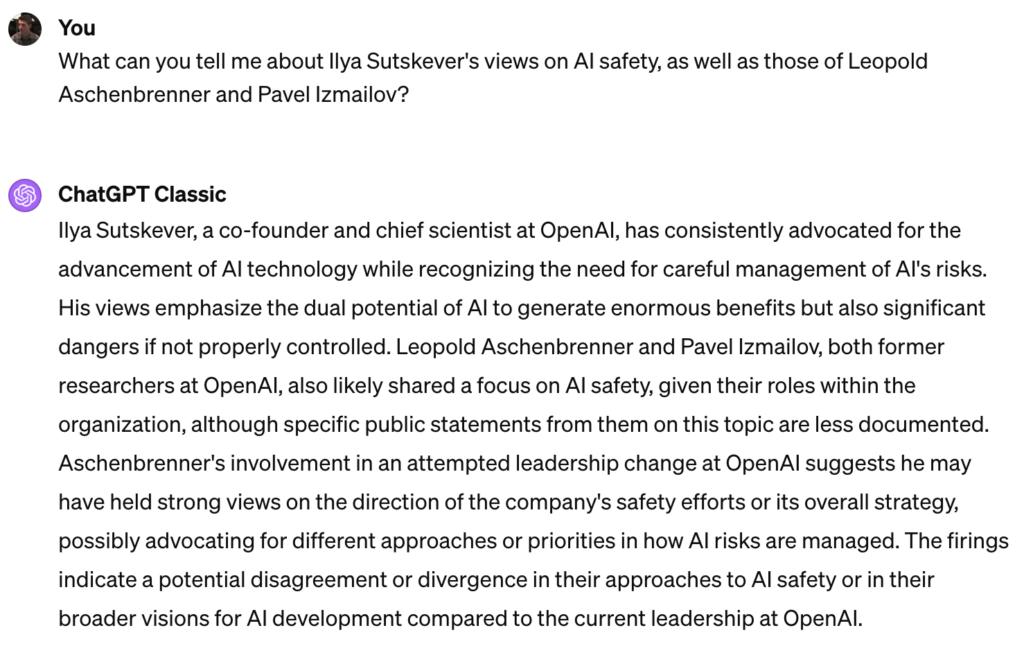Welcome to the newest edition of FindBiometrics’ AI update. Here’s the latest big news on the shifting landscape of AI and identity technology:

Taiwan Semiconductor Manufacturing Company plans to charge customers more for making chips outside of its domestic facilities. Customers are evidently anxious about depending so heavily on production facilities located in an island that China is widely expected to annex in the coming years, and want more TSMC facilities offshore. “If a customer requests to be in a certain geographical area, the customer needs to share the incremental cost,” said CEO CC Wei.
ASML, which makes chip manufacturing equipment, reported that its net bookings dropped from €9.2 billion in Q4 of 2023 to €3.6 billion in Q1 of this year, missing analysts’ €5 billion target. But the management expects a rebound in the second half, and ASML’s full-year guidance hasn’t changed. CEO Peter Wennink says 2024 is a “transition year” for chipmaking tech.
OpenAI has fired two researchers involved in its AI safety efforts. One is Leopold Aschenbrenner, an ally of OpenAI’s chief scientist, Ilya Sutskever, who was involved in the failed coup against CEO Sam Altman last autumn. The other is Pavel Izmailov, whose work was focused on AI reasoning, reports The Information.
Meta has launched Llama 3, the latest version of its open source large language model. It succeeds last summer’s Llama 2, bringing “vastly improved capabilities” and a less “sanctimonious” approach to answering user queries, Meta says.
The Los Alamos National Laboratory has launched a new supercomputer installation equipped with 2,560 NVIDIA Grace Hopper Superchips and Hewlett Packard’s Slingshot 11 network computation solution. The Venado supercomputer will apply AI and machine learning systems to national security and scientific research efforts.
Mistral is in talks to raise funding that would bring its valuation to $5 billion. The Paris-based open source AI developer had only just started to bring in revenues at the end of last year, with $415 million in sales in December. Existing investors include Andreessen Horowitz, Lightspeed Venture Partners, and Microsoft.
Andreessen Horowitz has raised $7.2 billion for investments in AI startups. The VC firm says that $3.75 billion will go to a “growth” fund targeting late-stage startups, while $1.25 billion will be allocated to AI infrastructure and the remaining $1 billion will be aimed at AI applications.
Rivos has raised over $250 million in a funding round led by Matrix Capital Management and featuring Intel Capital and MediaTek. The Silicon Valley startup is working on less expensive AI chips based on the open standard RISC-V, with CEO Puneet Kumar planning to target smaller customers “where Nvidia might seem like an overkill from a cost perspective.”
A Japanese company that has been working in ceramics for 200 years has now reached a market cap of $2.75 billion thanks to AI excitement. Aichi-based Maruwa’s ceramic components are used to cool circuit boards and semiconductors, and the company expects the AI boom to help drive its business over the next few years.
The chatbot’s take: ChatGPT doesn’t seem to have any tea to spill on the latest OpenAI drama.

–
April 18, 2024 – by Alex Perala








Follow Us